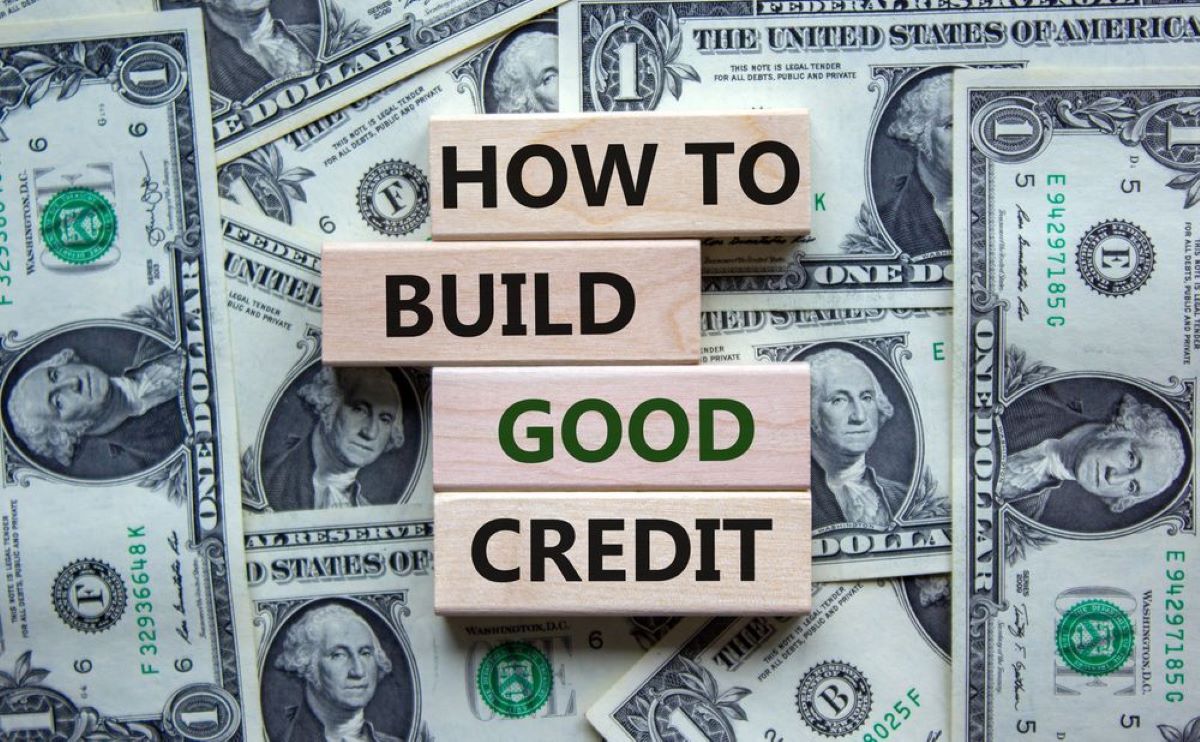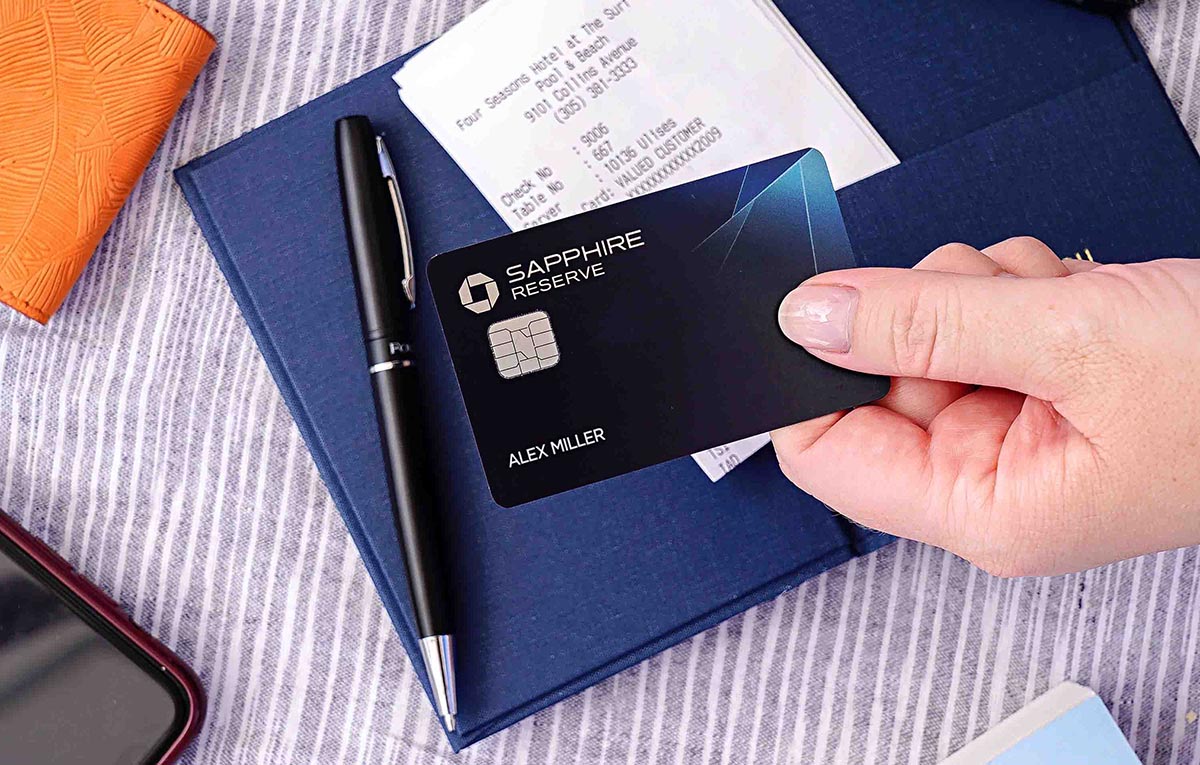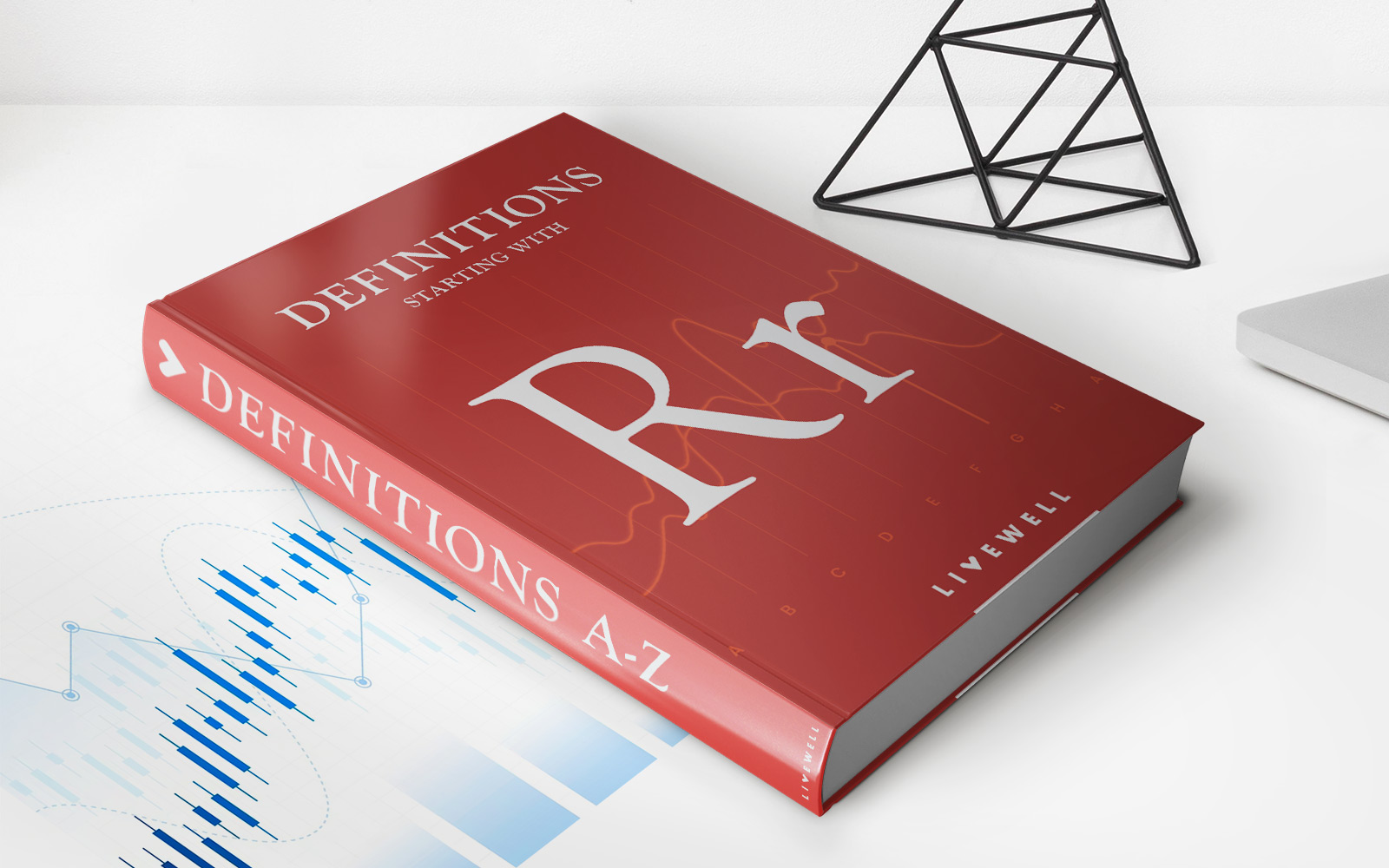

Finance
How Can A 16 Year Old Get A Credit Card
Modified: February 21, 2024
Looking to build credit at 16? Discover how a 16-year-old can obtain a credit card and start their financial journey. Find tips and guidance on managing finances for teens.
(Many of the links in this article redirect to a specific reviewed product. Your purchase of these products through affiliate links helps to generate commission for LiveWell, at no extra cost. Learn more)
Table of Contents
Introduction
As a 16-year-old, you may be starting to think about financial independence and the importance of managing your money wisely. One tool that can assist you on this journey is a credit card. While credit cards are typically associated with adults, there are options available for teenagers as young as 16 to obtain a credit card.
Getting a credit card at 16 can be a great way to start building your credit history and learning valuable financial skills. However, there are legal requirements and considerations that you need to be aware of before diving into the world of credit. This article will guide you through the process of obtaining a credit card at 16 and provide tips on responsible credit card usage to set you on the path towards a strong financial future.
It’s important to note that the availability of credit cards for 16-year-olds may vary depending on your country of residence. Always check with your local regulations and financial institutions to understand the specific requirements and options available to you.
Now, let’s explore the legal requirements for getting a credit card at 16.
Legal Requirements for Getting a Credit Card at 16
Before applying for a credit card at 16, it’s important to understand the legal requirements that come with it. In most countries, the legal age to enter into a legally binding contract, which includes applying for a credit card, is 18. However, there are some situations where individuals as young as 16 can qualify for a credit card, but they may require additional authorization.
1. Custodial Account: One option for 16-year-olds is to open a credit card under a custodial account. This means that a parent or guardian will be responsible for overseeing the account and giving consent for transactions. The minor will be listed as an authorized user and can use the card for their own expenses under parental guidance.
2. Joint Account: Another option is to open a joint account with a parent or guardian. In this case, both parties are equally responsible for the credit card balance. This can be a good way to learn about credit card usage and responsibility while having the support and guidance of a trusted adult.
3. Specialized Credit Cards: Some financial institutions offer credit cards specifically designed for teenagers. These cards often have lower credit limits and come with additional features like payment tracking and spending controls. This can be a great opportunity to start building credit at a young age and develop responsible financial habits.
It’s important to note that even with these options, the primary account holder (parent or guardian) will be legally responsible for any debts incurred on the credit card. Therefore, it’s crucial to have open and honest communication with your parent or guardian about your financial goals and expectations when using a credit card at 16.
Now, let’s explore the different types of credit cards available for 16-year-olds.
Different Types of Credit Cards for 16-Year-Olds
While the options for credit cards are more limited for 16-year-olds compared to adults, there are still a few types of credit cards that you can consider. These types of credit cards are designed specifically for teenagers and offer features that promote responsible spending and financial education. Here are some of the credit card options available for 16-year-olds:
- Secured Credit Cards: Secured credit cards can be a great starting point for teenagers looking to establish credit. With a secured credit card, you are required to provide a cash deposit as collateral, which becomes your credit limit. This helps minimize the risk for the credit card issuer, making it easier for teenagers to get approved. Secured credit cards often have lower credit limits and may come with higher interest rates, so it’s important to use them responsibly and pay off the balance in full each month to avoid interest charges.
- Prepaid Debit Cards: Prepaid debit cards are another option for 16-year-olds. These cards are not technically credit cards, as they do not extend a line of credit. Instead, you preload funds onto the card, and the card can be used for purchases just like a regular debit card. Prepaid debit cards do not contribute to building credit, but they can be a useful tool for managing expenses and learning about budgeting.
- Authorized User Cards: If your parent or guardian has good credit, they may consider adding you as an authorized user to one of their existing credit cards. As an authorized user, you will have your own card linked to the primary account holder’s credit card account. While you won’t be legally responsible for the debt, the primary account holder’s payment behavior will be reflected on your credit report. This can be a valuable way to start building credit history at a young age, but it requires trust and communication with the primary cardholder.
- Student Credit Cards: Some financial institutions offer credit cards specifically designed for students. These cards often have lower credit limits and come with features tailored to the needs of students. They may offer rewards for purchases such as textbooks or provide access to educational resources on financial literacy.
It’s important to review the terms and conditions, fees, and interest rates associated with each type of credit card before applying. Look for cards that have low fees and reasonable interest rates to ensure you can manage the card responsibly.
Now that you are familiar with the types of credit cards available, let’s explore how you can start building credit as a 16-year-old.
Building Credit as a 16-Year-Old
Building credit at a young age is a wise financial move that can set you up for future success. While getting a credit card at 16 is a great step towards building credit, it’s important to understand how to use it responsibly to establish a positive credit history. Here are some tips to help you build credit as a 16-year-old:
- Make Payments on Time: One of the most important factors in building credit is making timely payments. Always pay your credit card bill on time, as late payments can have a negative impact on your credit score. Consider setting up automatic payments to ensure you never miss a deadline.
- Keep Balances Low: It’s essential to keep your credit card balances low. Try to keep your credit utilization ratio (the amount of credit you’re using compared to your credit limit) below 30%. High credit card balances can negatively impact your credit score and make it harder to manage your debt.
- Avoid Applying for Multiple Credit Cards: While it may be tempting to apply for multiple credit cards, especially with enticing offers and rewards, it’s best to start with one or two cards and build a positive credit history. Applying for too many cards within a short period can raise red flags for lenders and negatively impact your credit score.
- Monitor Your Credit Report: It’s important to regularly check your credit report to ensure there are no errors or fraudulent activities. You can obtain a free credit report once a year from authorized credit bureaus. Reviewing your report helps you stay on top of your credit history and address any issues promptly.
- Use Credit Responsibly: It’s important to use your credit card responsibly. Avoid overspending and only make purchases that you can afford to pay off. Your credit card should be used as a tool to build credit, not to accumulate debt.
- Establish Other Types of Credit: In addition to credit cards, consider establishing other types of credit, such as a small personal loan or a student loan, if you have the means to repay them responsibly. Having a diverse credit mix can positively impact your credit score.
Remember, building credit takes time, so be patient and consistent in your efforts to establish a positive credit history.
Now that you know how to build credit as a 16-year-old, let’s explore some tips to increase your chances of getting approved for a credit card.
Tips for Getting Approved for a Credit Card at 16
Getting approved for a credit card at 16 may require some additional steps compared to applying as an adult. To increase your chances of approval, consider the following tips:
- Research Different Credit Card Options: Take the time to research and compare different credit card options available for 16-year-olds. Look for cards that have low annual fees, reasonable interest rates, and suitable features for your needs. Understand the requirements and eligibility criteria for each card before applying.
- Build a Steady Source of Income: Even though you may be young and not working full-time, having a steady source of income can strengthen your application. This can include income from part-time jobs, freelance work, or an allowance. Lenders want to see that you have the means to repay the credit card debt.
- Show Financial Responsibility: Demonstrating financial responsibility is crucial when applying for a credit card. This includes paying your bills on time, managing any existing financial obligations, and maintaining a positive relationship with your bank. Lenders are more likely to approve a credit card application from someone who shows responsible money management.
- Consider a Co-Signer: If you’re having difficulty getting approved for a credit card on your own, you may consider asking a parent or guardian to co-sign the application. A co-signer essentially guarantees to repay the debt if you default. Having a co-signer with good credit can increase your chances of approval.
- Start with a Secured Credit Card: If you’re having trouble getting approved for a traditional credit card, consider starting with a secured credit card. With a secured card, you provide a cash deposit as collateral. This reduces the risk for the credit card issuer and may make it easier to get approved. Over time, as you build a positive credit history, you can transition to an unsecured card.
- Apply at Your Primary Bank or Credit Union: Applying for a credit card at the bank or credit union where you have an existing relationship can work in your favor. They may be more willing to extend credit to you since they have a history of your financial transactions and behavior.
Remember to apply for credit cards responsibly and avoid submitting multiple applications simultaneously, as it can negatively impact your credit score. Each credit card application generates a hard inquiry on your credit report, which can lower your score temporarily.
Now that you have some tips for getting approved, let’s dive into responsible credit card usage for 16-year-olds.
Responsible Credit Card Usage for 16-Year-Olds
Using a credit card at 16 comes with great responsibility. It’s essential to develop good financial habits and use your credit card responsibly to avoid unnecessary debt and build a strong credit history. Here are some tips for responsible credit card usage as a 16-year-old:
- Create a Budget: Before using your credit card, create a budget to track your income and expenses. Set limits on how much you can spend each month and stick to it. This will help you avoid overspending and ensure that you can comfortably pay off your credit card balance.
- Pay Your Bill in Full and on Time: Aim to pay off your credit card balance in full each month. Making only the minimum payment can lead to accumulating high-interest debt and can negatively impact your credit score. Set up reminders and consider automatic payments to ensure you never miss a payment due date.
- Avoid Maxing Out Your Credit Limit: It’s advisable to keep your credit card balance well below your credit limit. Maxing out your card can hurt your credit utilization ratio and may signal to lenders that you’re relying too heavily on credit. Aim to use no more than 30% of your available credit to maintain a healthy credit utilization ratio.
- Avoid Impulse Purchases: Before making a purchase, take a moment to consider whether it’s a necessity or a want. Avoid impulsive buying to prevent unnecessary debt. As a general rule, only use your credit card for purchases you can afford to pay off promptly.
- Regularly Review Your Statements: Stay on top of your credit card activity by regularly reviewing your monthly statements. Check for fraudulent transactions or any errors. Report any discrepancies to your credit card provider immediately.
- Track Your Spending: Keep track of your credit card spending to gain a clear understanding of your financial habits. Use online banking apps or personal finance tools to monitor your expenses and identify areas where you can make adjustments.
- Be Mindful of Credit Card Benefits: Some credit cards offer various benefits such as cashback rewards, travel perks, or discounts. Take advantage of these benefits, but ensure that they align with your financial goals and don’t lead to unnecessary spending or debt.
Remember, responsible credit card usage is crucial in building a solid credit history and maintaining a healthy financial future. Develop good habits early on to set yourself up for success.
Now, let’s wrap up this article.
Conclusion
Getting a credit card at 16 can be a valuable step towards building your credit history and gaining financial independence. While there are legal requirements and considerations, such as custodial accounts or joint accounts, that you need to be aware of, it’s possible to obtain a credit card as a teenager.
When exploring different credit card options, look for cards that align with your needs and offer features designed for young borrowers. Building credit as a 16-year-old requires responsible usage and financial discipline. Make payments on time, keep your balances low, and avoid applying for multiple credit cards. Consider starting with a secured credit card or becoming an authorized user on a parent or guardian’s card to establish credit.
Using your credit card responsibly is key to avoiding unnecessary debt and building a positive credit history. Create a budget, pay your bill in full and on time, and avoid maxing out your credit limit. Regularly review your statements, track your spending, and be mindful of the benefits your credit card may offer.
Remember, building credit takes time and patience. By using your credit card responsibly and developing good financial habits, you can set a solid foundation for your financial future. As you progress into adulthood, a positive credit history will open doors to opportunities like getting approved for loans, renting an apartment, or even starting your own business.
Always remember to consult your local regulations and financial institutions to ensure you comply with the necessary legal requirements and guidelines for obtaining a credit card at 16.
With the right knowledge, discipline, and responsible credit card usage, you can pave the way for a financially secure future. Start building your credit history now and enjoy the benefits of having strong financial foundations for years to come.














